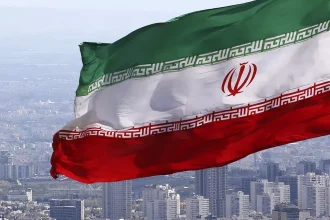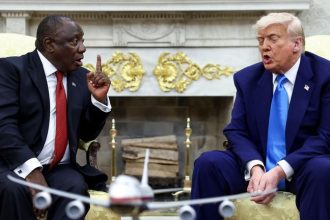President Vladimir Putin issued a stern warning to officials on Friday, demanding they prevent Russia from slipping into recession “under any circumstances,” even as some government economists raised concerns about weakening growth prospects.
Speaking at Russia’s flagship St. Petersburg International Economic Forum, Putin acknowledged emerging risks while projecting confidence in the nation’s economic resilience: “Some specialists and experts are pointing to the risks of stagnation and even a recession. This must not be allowed to happen under any circumstances.”
The Russian leader outlined his prescription for economic stability: “We need to pursue a competent, well-thought-out budgetary, tax and monetary policy.” He emphasized the need for “balanced growth” across sectors, instructing officials to maintain “a close eye on all indicators of the health of our industries, companies and even individual enterprises.”
The warning comes as Russia reports its slowest quarterly expansion in two years during Q1 2025, following 2023-2024 growth fueled by massive military spending for the Ukraine campaign.
While the Kremlin has framed the slowdown as expected after rapid expansion, Economy Minister Maxim Reshetnikov and others have voiced concerns about sustained economic pressures.
Putin pushed back against characterizations of Russia’s economy as overly dependent on defense and energy: “Yes, of course, the defense industry played its part in this regard, but so did the financial and IT industries.”
Analysts counter that the wartime economic model – with nearly 40 per cent of 2024’s budget allocated to defense – masks underlying weaknesses. The central bank has repeatedly warned that military-focused growth fails to boost productivity or living standards, with consumer demand weakening as inflation persists above 7 per cent.
The forum address revealed Putin’s delicate balancing act – celebrating Russia’s sanctions defiance while preparing the public for potential economic headwinds.
The president ordered regional governors to accelerate import substitution programs and promised new support measures for civilian industries, though provided few concrete details.
With oil revenues declining and the ruble remaining volatile, Moscow faces mounting challenges maintaining its military-industrial expansion while preventing broader economic deterioration.







